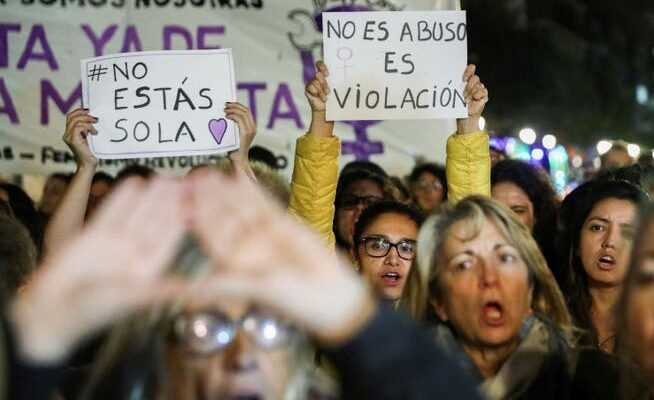The Spanish parliament wants sexual assault to be considered rape in the future. The Senate still has to approve the law.
Cases of gang rape have sparked major protests in Spain in recent years. (Picture: Demonstration against a rapist verdict in Madrid in November 2019)
(dpa) Spain has taken a big step towards tightening sexual offenses. On Thursday, the parliament in Madrid approved with a clear majority a draft law by the left-wing government, according to which all persons involved must in future expressly consent to sexual acts.
The MPs of the conservative People’s Party (PP) and the right-wing populist Vox voted against the so-called “Only Yes Means Yes” law. Her main argument: the plan jeopardizes the principle of the presumption of innocence. The law still has to be approved by the Senate before it can be passed, but this is considered a formality.
End of the “rape culture”
The new law eliminates the distinction between abuse and aggression. Sexual assault will be considered rape after the enactment, whether the victim resists or allows an act to happen out of fear. Up to 15 years in prison will then be available for rape and sexual violence. In addition, “intimidating” compliments and the distribution of sex videos are also punishable.
Equality Minister Irene Montero celebrated the House of Commons endorsement, saying it was “a crucial step in changing Spain’s sexual culture” and ending “sexual terror” and the “culture of rape”. “The feminist movement is making history in Spain,” she said.
Response to gang rape
With its initiative, the left-wing government reacted to several sensational cases of gang rape in which the perpetrators had gotten away with light sentences in recent years. A case in July 2016 in particular caused outrage. A group of five young men dragged a young woman into a doorway during the San Fermín celebrations in Pamplona. They raped their victim multiple times and filmed the whole thing.
The responsible court did not consider the facts of the rape to be given because, as the 2018 judgment said, there had been “neither beatings nor threats” and the victim had remained passive. The verdict sparked protests across the country.
